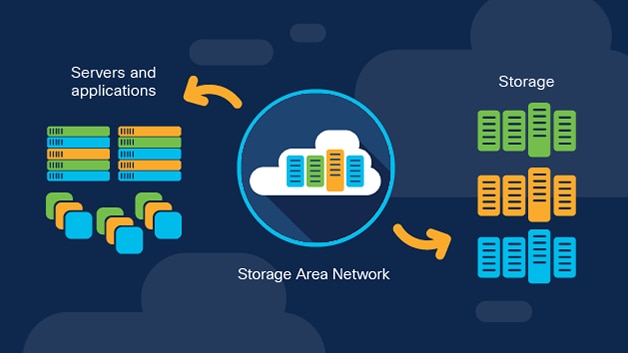Cloud Backup Solutions! Compare it with On-Premises?

Cloud Backup Solutions! Compare it with On-Premises?
Are you considering a cloud backup solution? Wondering if it’s worth the switch from your on-premises backup solution? In this blog post, we’ll compare the two options and help you decide which is best for your needs. We’ll discuss the pros and cons of both solutions and outline some factors to consider when making your decision. Stay tuned to learn more!
What is Cloud Backup Solutions?

Cloud backup solutions are a popular way to back up data and store it in the cloud. With this type of solution, your files are stored on remote servers, or “the cloud,” instead of an internal server at the physical location of your business. This allows you to access your data from anywhere with an internet connection and provides an additional layer of security.
What is On-Premises?
On-premises solutions are traditional backup solutions that store your data on physical storage devices, such as hard drives and tapes, located at your business location. With this option, you have complete control over access to the files and the security of the backups.
Key Features of Both
1. Accessibility –
Cloud backup solutions allow you to access your data from anywhere. On-premises solutions, on the other hand, require physical access to the server or device in order to retrieve files.
2. Cost –
Many cloud backup solutions are subscription-based and charge a monthly fee for storage space. With an on-premises solution, you may need to purchase additional hardware and storage devices, which can be costlier up front.
3. Security –
Both cloud backup solutions and on-premises solutions offer some level of security. Cloud-based solutions typically have the advantage of enhanced encryption protocols to protect your data from unauthorized access. On-premises solutions may also have some security features, such as password protection and firewalls.
4. Reliability –
Cloud backups are generally more reliable than on-premises solutions, as cloud servers are typically located in multiple locations and have built-in redundancy. On-premises solutions may be susceptible to power outages and other disruptions that can cause data loss.
5. Scalability –
In general, cloud backup solutions offer greater scalability than on-premises solutions, as you can easily increase or decrease your storage space as needed. On-premises solutions are limited by the amount of physical space available for storage.
Also, Read: What is Cloud Backup and Recovery?
Let’s Compare Their Benefits
1. Cloud Backup Solutions:
- Data is available from anywhere with an internet connection
- Flexible pricing models to accommodate various storage needs
- Enhanced security features and encryption protocol.
- Reliable, redundant storage of data
2. On-Premises Solutions:
- Total control over access rights and security protocols
- Ability to customize the backup solution to fit specific needs
- Less expensive up front cost than cloud solutions
Types of Cloud Backup Services
1. Infrastructure as a Service (IaaS):
This type of cloud backup uses the infrastructure layer of a cloud service provider. It provides storage and compute resources that can be used to store and manage data backups.
2. Platform as a Service (PaaS):
This type of service allows developers to build applications within the cloud environment. It provides a platform that enables organizations to quickly develop and deploy applications.
3. Disaster Recovery as a Service (DRaaS):
This type of service is designed to help organizations recover from disasters. It includes automated backups, disaster recovery plans, and services such as continuous replication and point-in-time restores.
4. Backup as a Service (BaaS):
This type of service provides automated backups that are stored in the cloud. It is designed to ensure that data is backed up regularly and securely.
Also, Read: Compare Affordable Cloud Hosting Plans in India
Types of On-Premises
1. Tape Backup:
Tape backups are the most traditional form of on-premises backup solutions. Data is stored on tapes that can be manually or automatically written to and accessed at any time.
2. Direct Attached Storage (DAS):
Direct attached storage is a type of local storage device that connects directly to a computer or server. It is generally used for archiving large amounts of data, as it requires physical access to the device in order to retrieve that data.
3. Network Attached Storage (NAS):
Network attached storage systems are shared storage devices that are connected to a network and accessible by multiple users at once. They provide an efficient way to store and manage large amounts of data.
4. Storage Area Networks (SANs):

Storage area networks are specialized storage systems that can provide high-availability, scalability, and performance for mission-critical applications. They are often used in enterprise environments where uptime is critical.
5. Object Storage:
Object storage is an emerging technology that stores data in the form of objects. It provides a simple, cost-effective way to store large amounts of unstructured data.
Conclusion
Cloud backup solutions and on-premises solutions both offer their own advantages and disadvantages, depending on the needs of an organization. Cloud backups are typically more reliable and scalable than on-premises solutions, while on-premises solutions provide more control over data security and customization. Ultimately, organizations must decide which option is best for their specific use case.
FAQs
1. What is cloud backup?
Answer: Cloud backup is the process of backing up data to a remote cloud service provider. It provides an offsite storage solution, allowing organizations to ensure their data is secure and accessible from anywhere with an internet connection.
2. What are the benefits of on-premises solutions?
Answer: On-premises solutions provide total control over data security and access, as well as the ability to customize the backup solution to fit specific needs. They also tend to be less expensive up front than cloud solutions.
3. What is object storage?
Answer: Object storage is an emerging technology that stores data in the form of objects. It offers a simple, cost-effective way to store large amounts of unstructured data.
4. What is Disaster Recovery as a Service (DRaaS)?
Answer: DRaaS is a type of cloud backup service designed to help organizations recover from disasters. It includes automated backups, disaster recovery plans, and services such as continuous replication and point-in-time restores.
5. What is Tape Backup?
Answer: Tape backup is the most traditional form of on-premises backup solution. Data is stored on tapes, which can be manually or automatically written to and accessed at any time.


![Photo of [#pvp@tv] Champions League basketball 2022 Live free BASKETBALL](https://blogspinners.com/wp-content/uploads/2022/10/16457167468591-390x220.jpg)


